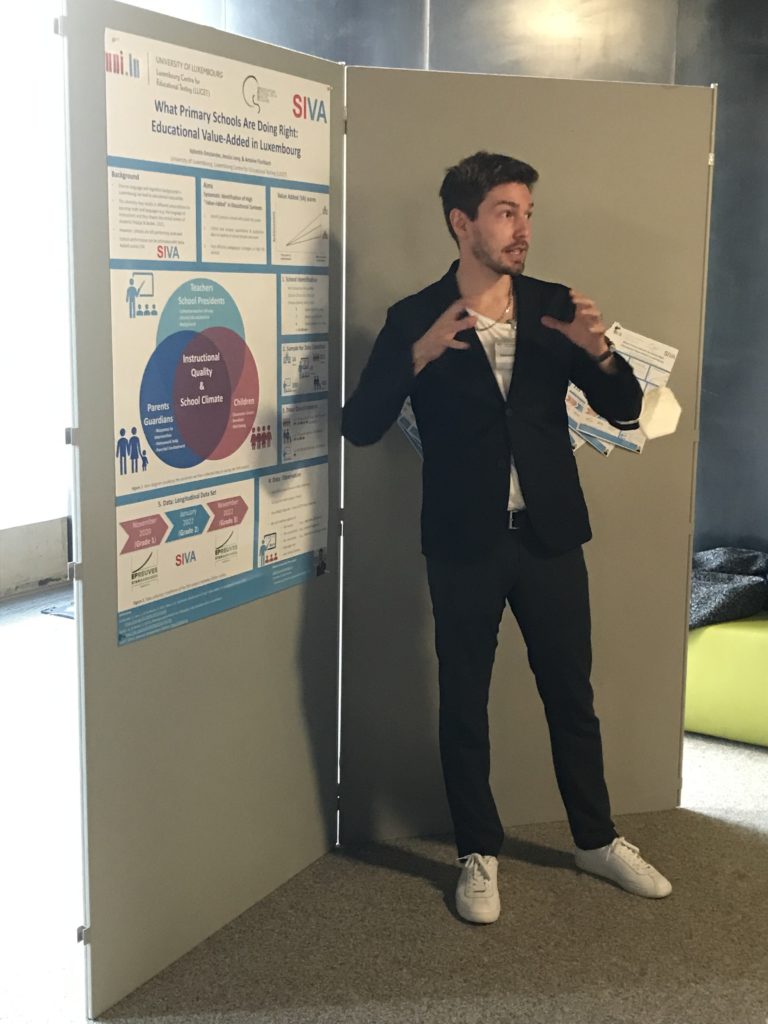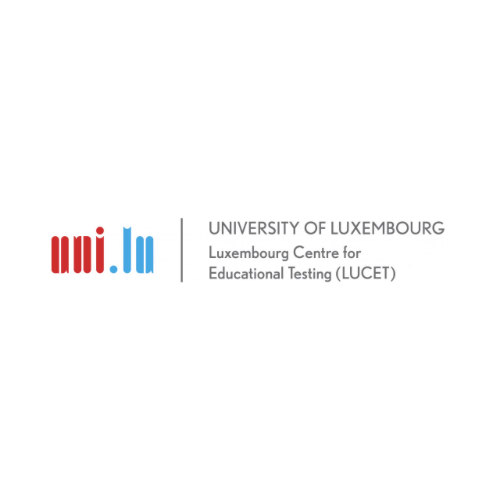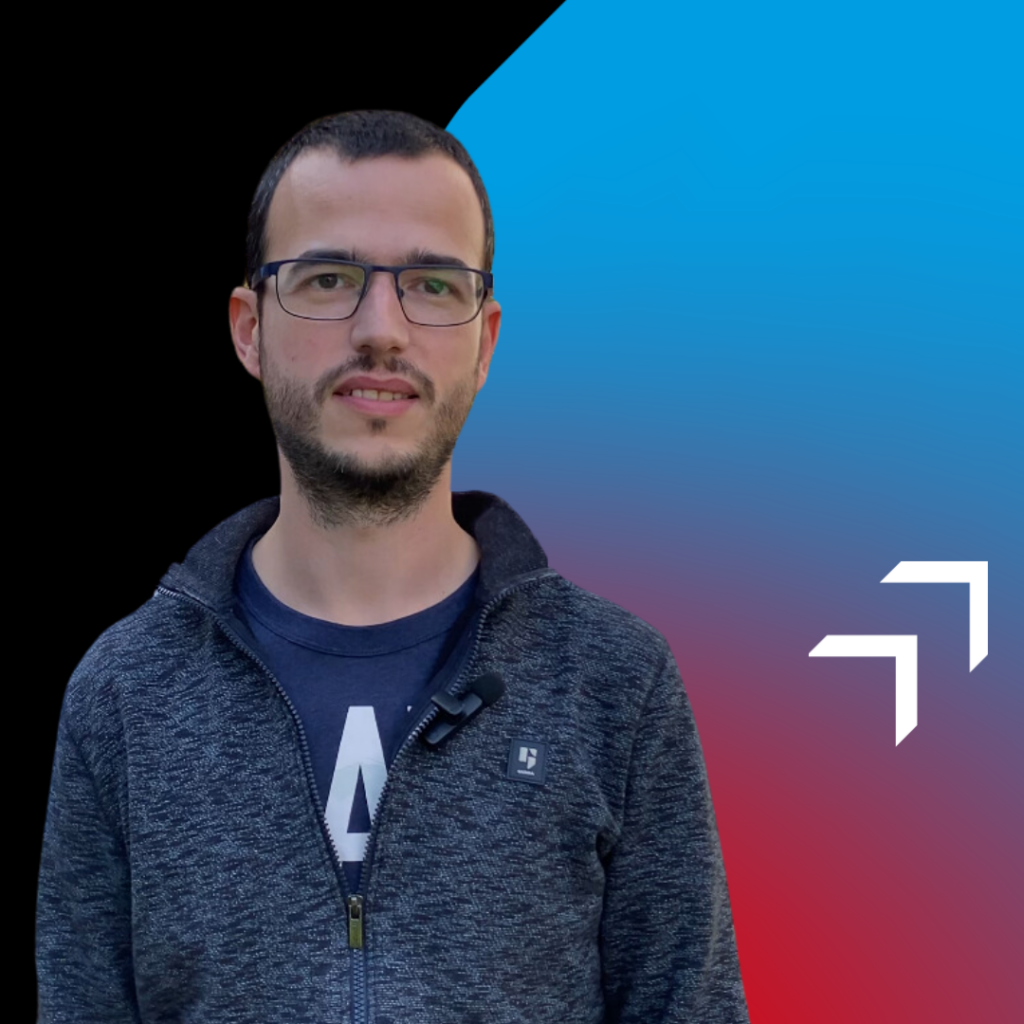In conversation with our young researchers: Valentin Emslander
06 January 2023

Diversity in the classroom
Fostering inclusion and awareness around multicultural education and adopting a culturally sensitive approach to teaching benefits all stakeholders. Not only does multicultural awareness and inclusion help students with different backgrounds and needs to succeed, but it encourages acceptance and helps prepare them to thrive in a world of increasing diversity.
What are successful Luxembourg primary schools doing to support their pupils? What can other schools learn from them?
Valentin Emslander is a PhD candidate at the Luxembourg Centre for Educational Testing (LUCET) of the University of Luxembourg. His research project aims to systematically identify high added value in educational contexts in Luxembourg.
Identifying the best educational strategies
Diversity in and out of the classroom is an inherent component of Luxembourg schools. Integrating a diversity-friendly approach to teaching is critical. Diversity is not just about race and ethnicity; it can include students of different religion, socio-economic background, sexual orientation, gender identity and linguistic origin. It is therefore essential to adapt pedagogical approaches to foster inclusion in the classroom community.
Supported by the National Observatory for School Quality, Valentin wants to find out what primary schools in Luxembourg are doing right by using the great diversity of their students as an advantage. More specifically, he is interested in the relationship between teachers and students, the quality of teaching and cognitive processes in young school students.

I want to find out why some primary schools excel at supporting their pupils. This research can be used by other schools to improve their own processes. The overall aim is to make all primary schools in Luxembourg fairer and therefore more effective for all pupils.
Valentin Emslander
Conducting research on teacher-student relationships and effective teaching involves collecting data and experiencing the classroom atmosphere. Through this observational research backed by meta-analytic literature work on cognitive functions, Valentin is able to design interventions to support students’ well-being and academic success. This approach, he says, allows him to better understand the social dimension and impact of his research.
Providing a sound school environment for LGBTQ+ students
Valentin is also interested in researching the experiences of LGBTQ+ youth in the school context. By shedding light on teachers’ attitudes towards lesbian, gay and bisexual students, the researcher intends to uncover prejudices and help improve the negative impact on LGB students. Research tells us that students can only learn well in a respectful and safe environment, which LGB students sometimes lack. Valentin wants to change that.

By taking a closer look at LGBTQ+ students, I want to zoom in on this generally overlooked and under-researched community in school environments and beyond.
Valentin Emslander
A member of the Luxembourg Centre for Educational Testing (LUCET)
Naturally keen to discover new things, Valentin first pursued a one-year liberal arts and sciences degree. It was through this that he felt the satisfaction of doing research to understand human behaviour, effective interventions and teaching.
Subsequently, he completed a Bachelor’s and Master’s degree at the University of Trier, Germany. During this period, he was able to carry out long research stays at the Centre for Educational Measurement (CEMO) at the University of Oslo, Norway, thanks to a scholarship from the German Business Foundation. It was during his master’s degree in psychology that he came to know the University of Luxembourg as an ideal place to conduct research during an internship in health psychology with Professor Claus Vögele.
What brought me to Luxembourg, apart from personal reasons and a love for the Greater Region, was my current supervisor, Antoine Fischbach, who is known to be a very kind and supportive mentor.
Valentin Emslander
After a year spent at the Institute for Positive Psychology and Education in Sydney, Australia, where he wrote his Master’s thesis, Valentin chose to do his PhD at the Luxembourg Centre for Educational Testing (LUCET) of the University of Luxembourg over the opportunities available in Oslo and Sydney.

The Luxembourg Centre for Educational Testing (LUCET) is a research and transfer centre primarily assembling expertise in assessment and testing in technology-rich multilingual learning environments.
The centre was jointly launched by the University of Luxembourg and the Ministry of Education in July 2014.
A great landscape for educational research
Valentin chose Luxembourg because of its attractive working environment. By coming here, he knew that he would have a reasonable chance of having his research financially supported. More importantly, he had heard about the collaborative and friendly working environment. Indeed, the LUCET team works closely together, even when it comes to collecting data for the national school monitoring. As such, Valentin enjoys working in an interdisciplinary team with psychologists, sociologists, educators, statisticians, but also content experts such as linguists and mathematicians.

Luxembourg has a great landscape for educational research. It can be seen as a living laboratory in which the cultural and language diversity is at a point to which other European countries are still getting.
At LUCET, I value the wealth of population data. Few countries can collect data on all students of a given grade. With all these opportunities in one place, I can only recommend coming to Luxembourg as a researcher.
Valentin Emslander
What gives him great confidence is the considerable efforts made by the Luxembourg research ecosystem to make science more accessible and open.
It is crucial for the credibility of research to be encouraged to freely share data, material and code, as well as results. This is a step in the right direction! In the same vein, the presence and excellent work of the Luxembourg Agency for Research Integrity (LARI) is in line with my strong belief that research integrity is at the heart of everything we do as researchers.
Valentin Emslander










